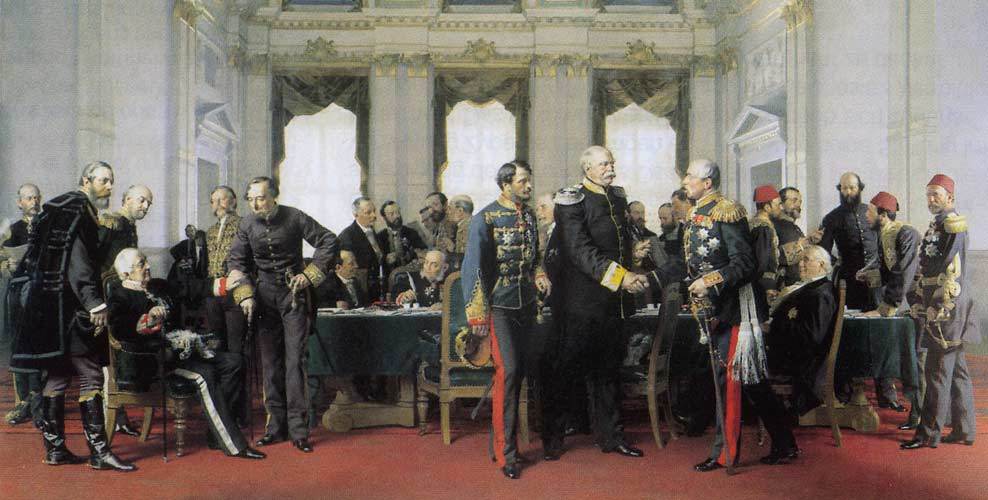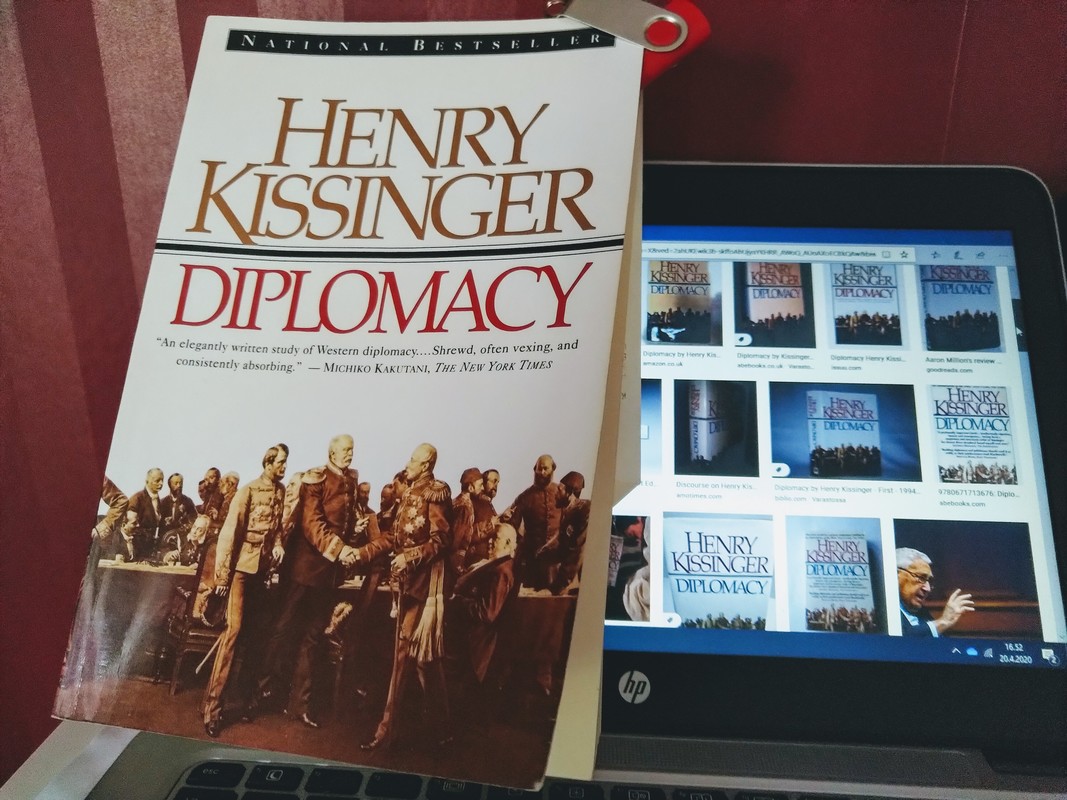3) Bismarck and Europe, 1871-90
How successful was German foreign policy during the Bismarck years (1871-90)?
"Bismarck once said that, in a combination of five players, it is always desirable to be on the side of the three. But since, of the five Great Powers - England, France, Russia, Austria and Germany - France was hostile, Great Britain unavailable due to its policy of 'splendid isolation', and Russia ambivalent because of its conflict with Austria, Germany needed an alliance with both Russia and Austria for such a grouping of three. Only a statesman possessed of Bismarck's willpower and skill could have conceived such a precarious balancing act. Thus, the relationship between Germany and Russia became the key to the peace of Europe."1
"Bismarck's goal was to give no other power - except irreconcilable France - any cause to join an alliance directed against Germany. Professing the unified Germany to be 'satiated' and without further territorial ambitions, Bismarck sought to reassure Russia that Germany had no interest in the Balkans; the Balkans, he said, were not worth the bones of a single Pomeranian grenadier. Keeping Great Britain in mind, Bismarck mounted no challenge on the Continent that might trigger a British concern for the equilibrium [= balance of power], and he kept Germany out of the colonial race. 'Here is Russia and here is France and here we are in the middle. That is my map of Africa,', was Bismarck's reply to an advocate of German colonialism - a piece of advice domestic politics would later force him to modify."2
_____________
1Henry Kissinger, Diplomacy (New York: Simon & Schuster Paperbacks, 1994), 139.
2Kissinger, 146.
Group work: Assess the successes and the failures of Bismarck's alliance policy.
1) Read at first the quotes above: What were the priorities of Bismarck's foreign policy according to Kissinger?
2) Study the reports of the group works (at the dropbox below): To what extent were the mentioned priorities realised during the years 1871-1890?
Henry Kissinger (b. 1923)
The latest article by Kissinger (3 April 2020)
"Bismarck's goal was to give no other power - except irreconcilable France - any cause to join an alliance directed against Germany. Professing the unified Germany to be 'satiated' and without further territorial ambitions, Bismarck sought to reassure Russia that Germany had no interest in the Balkans; the Balkans, he said, were not worth the bones of a single Pomeranian grenadier. Keeping Great Britain in mind, Bismarck mounted no challenge on the Continent that might trigger a British concern for the equilibrium [= balance of power], and he kept Germany out of the colonial race. 'Here is Russia and here is France and here we are in the middle. That is my map of Africa,', was Bismarck's reply to an advocate of German colonialism - a piece of advice domestic politics would later force him to modify."2
_____________
1Henry Kissinger, Diplomacy (New York: Simon & Schuster Paperbacks, 1994), 139.
2Kissinger, 146.
Group work: Assess the successes and the failures of Bismarck's alliance policy.
1) Read at first the quotes above: What were the priorities of Bismarck's foreign policy according to Kissinger?
2) Study the reports of the group works (at the dropbox below): To what extent were the mentioned priorities realised during the years 1871-1890?
Henry Kissinger (b. 1923)
The latest article by Kissinger (3 April 2020)
Bismarck and Europe
Analyse Bismarck's alliance system by using historical key concepts (CCCCSP):
A. Dreikaiserbund (The Three Emperor's League, 1873) on pages 18-19
B. The Dual Alliance (1879) on page 27
C. The Three Emperor's Alliance (1881) on page 28
D. The Triple Alliance (1882) on pages 28-29
E. The Reinsurance Treaty (1887) on pages 31-32
A. Dreikaiserbund (The Three Emperor's League, 1873) on pages 18-19
B. The Dual Alliance (1879) on page 27
C. The Three Emperor's Alliance (1881) on page 28
D. The Triple Alliance (1882) on pages 28-29
E. The Reinsurance Treaty (1887) on pages 31-32
Liitteet:
Bixmarck and Europe: dropbox
Sinulla ei ole tarvittavia oikeuksia lähettää mitään.
The Congress of Berlin and the European alliance system, 1878-1890





